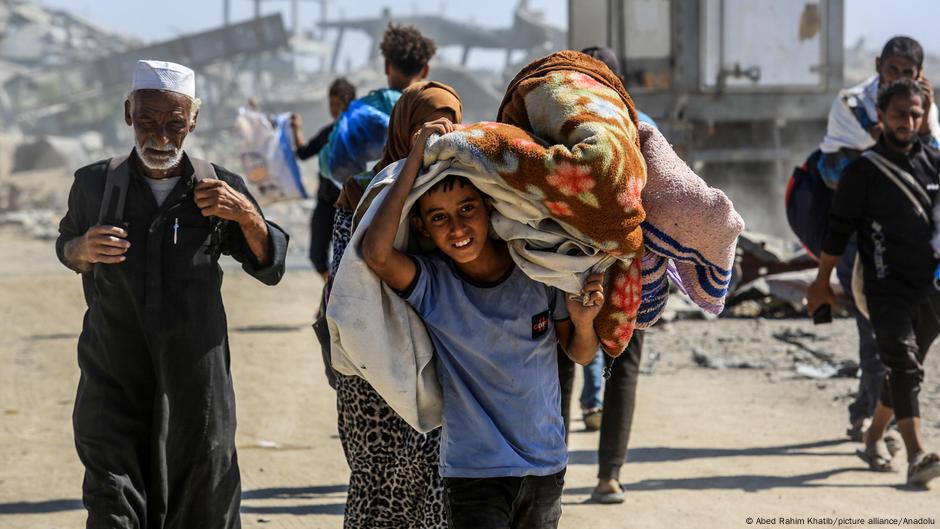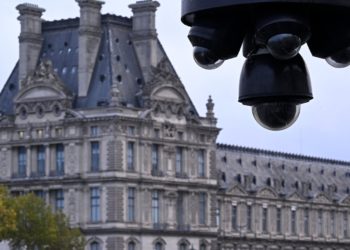Amid the fragile ceasefire which has been violated several times already, anti-Palestinian disinformation, propaganda, and racism continue to spread widely online. investigates why these narratives go viral and what makes them so dangerous.
Anti-Palestinian disinformation and propaganda is used as a weapon “to justify crimes that are being committed,” says Jalal Abukhater, policy manager at 7amleh, the Arab Center for the Advancement of Social Media, in an interview with DW. Since the Hamas-led terrorist attack on Israel on October 7, 2023, Israeli military actions have reportedly killed at least 68,000 Palestinians according to Palestinian health authorities. UN expertsand the International Association of Genocide Scholars have found Israel’s conduct to be a genocide.
Historical roots of anti-Palestinian racism
While anti-Palestinian campaigns have intensified after October 7, 2023, they have grown throughout history, experts say. “This has its roots in colonial and Orientalist discourse,” explains Asmaa El Idrissi, a lawyer and lecturer at Bochum University of Applied Sciences, in a DW interview. She adds: “If you look at literature from 100 years ago, you will find exactly the same stereotypes that are now resurfacing against Palestinians: Arabs or Muslims as irrational and backward.” After the September 11, 2001, attacks, Arabs and Muslims were increasingly portrayed as dangerous and sympathetic to terrorism. These stereotypes continue to shape public perception and policy.
According to Asmaa El Idrissi, one of the most critical historical contexts for understanding anti-Palestinian sentiment is the denial of the Nakba.
The Nakba, “Arabic for ‘catastrophe,’ refers to the mass displacement and dispossession of Palestinians during the 1948 Arab-Israeli war.” On May 14, 1948, was declared on Palestinian land. According to the Palestinian Central Bureau of Statistics more than 800,000 Palestinians were driven out of their homeland, and at least 15,000 were killed in the Nakba. Still, the Nakba is often denied or not spoken about.
It’s “clearly the denial of the Nakba as a core narrative for delegitimizing any demand for equal rights and a free life,” El Idrissi explains.
She emphasizes that combating disinformation, propaganda, and racism against Palestinians requires education and historical awareness: “What is the history of Palestine? What is Germany’s history? And what legal and moral obligation does German history impose on this conflict?”
False equivalence: Palestinians are not Hamas
Currently, one of the most persistent false narratives is the conflation of all Palestinians with Hamas. This narrative is misused to justify collective punishment, which violates international law.
While Hamas is a political party with a military wing and is classified as a terrorist organization by the EU, Germany and other countries, the party was elected in the last regional election in 2006, although without a majority of the vote. Since then, no regional elections have been held due to unresolved political splits between Hamas and the political party Fatah and due to the ongoing occupation and blockades by Israel.
El Idrissi emphasizes: “What we are dealing with here is collective punishment, which is essentially untenable under international law.”
Experts say one outcome is that civilian deaths in Gaza are often downplayed and therefore underreported. Abukhater gives an example: When a car or a tent in Gaza gets bombed or targeted, “someone would say that maybe there was a Hamas person in that vehicle where five children have been killed. And that would be enough for them to say: Let’s move on to the next story.”
Disinformation and racism: A dangerous alliance
This biased attitude towards Palestinians is further fueled by racist media coverage. Palestinian researcher Hanan Sahmoud highlights how European media have often “depicted Palestinians as savages.” The wider public tends to adopt these dehumanizing perspectives in a self-reinforcing cycle. Social media users regularly describe Palestinians as rats, and there are examples of Israeli officials doing the same.
On October 9, 2023, Yoav Gallant, then Israel’s defense minister, said, “I have ordered a complete siege on the Gaza Strip. There will be no electricity, no food, no fuel, everything is closed. We are fighting human animals and we act accordingly.” Experts agree that this dehumanization reduces empathy. El Idrissi says: “All of this leads to what is known as an empathy gap, which in turn leads to a justification for unequal treatment.”
This dehumanization was further fueled by targeted disinformation regarding the famine in Gaza in 2025. that there was no famine there, and that children only looked malnourished because of pre-existing illnesses and not because of Israel blocking humanitarian aid and food from entering Gaza.
Fabricated “information” and “moral” justifications that frame a war as just and necessary are not new – there is a growing body of evidence that misinformation and disinformation are key components of inciting violence and wars around the world. When it comes to the war in Gaza, propaganda and the dehumanization of Palestinians go hand in hand. This typical racist phenomenon amplifiesthe belief that races exist and that some races are intrinsically superior to others.
UN condemns police violence at pro-Palestinian demonstrations in Germany
This dynamic can also be observed in Germany. Many media outlets frame Palestinians and people who show solidarity with Palestinians as dangerous, El Idrissi says, and all Palestinians are falsely portrayed as violent, antisemitic and antidemocratic. Abukhater adds, “It’s a very racist assumption to say anyone who stands for Palestinian rights is ‘pro terrorist.’”
These assumptions can also be seen in police violence against pro-Palestinian protesters and the reporting on such incidents. “We are alarmed by the persistent pattern of police violence and apparent suppression of Palestine solidarity activism by Germany,” UN experts stated in a press release on October 16.
During the past years, in Germany have been reportedly subjected to police violence, leaving some injured and requiring medical care. On May 15, during Nakba Day commemorations, German media widely reported that a police officer was seriously injured by demonstrators. Investigations later revealed the opposite: protesters were subjected to police violence.
Media bias and source reliance
Generally, there’s a problem with the media coverage of Israel and Palestinians: Oftentimes, media rely mainly on statements from the Israeli military and government, treating them as fact without appropriate cross-referencing, fact-checking, citation or critical analysis. An analysis of nearly 4,853 headlines by German media between October 7, 2023, and January 19, 2025, shows that many leading German media outlets rely primarily or exclusively on official Israeli sources for their reporting on the Middle East.
For example, in August, Israel killed the 28-year-old journalist in Gaza. Israel’s military claimed without evidence that Al-Sharif had led a Hamas cell; numerous German media, including the tabloid Bildrepeated the claim, despite a lack of proof.
Social media’s role in amplifying propaganda
Social media platforms also play a significant role in boosting anti-Palestinian content. appeals to emotions, and algorithms often promote right-wing and extremist content. “We know that right-wing extremist content or extremist content is pushed by the algorithm,” El Idrissi says.
Moreover, paid propaganda and one-sided ads are accepted and spread by social media platforms. An investigation by DW Fact check and members of European News Spotlight revealed in September that the State of Israel had spent at least €42 million (approx. $49 million) on anti-Palestinian propaganda ads. On August 22, the same day as the Integrated Food Security Phase Classification (IPC), a UN initiative, had announced that large parts of the Gaza Strip were experiencing a “man-made famine” and that ” starvation is present and is rapidly spreading,” the Israeli Government Advertising Agency launched a new campaign denying the famine. )
Recently, Meta (which owns Facebook and Instagram) has scaled back third-party fact-checking programs in many countries. Investigations by 7amleh show that Meta’s ad systems approved and profited from violent and inciting content in 2023 and 2025 by accepting it as paid advertising. Recent media reports also reveal that Israel has invested at least $6 million to train ChatGPT in its favor.
So, what can societies do to combat anti-Palestinian propaganda and racism? Researcher Abukhater says it is critical for people to give Palestinians room to tell their own stories: “Palestinians are often spoken about, and Palestinians don’t speak for themselves” across many media outlets. In addition to improving representation, the media must examine personal and structural biases. “There should be more discussion on anti-Palestinian racism, recognizing it as a concept, looking at the semantics and how it’s used generally to dehumanize, to accuse all Palestinians.”
Edited by: Rachel Baig, Kyra Levine
The post Fact check: How anti-Palestinian disinformation fuels violence and racism appeared first on Deutsche Welle.




